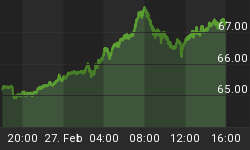Google isn’t just dropping all qualms about Chinese censorship to bring its search engine to China, but it’s also reporting looking for a local partner to launch its cloud business there, despite the intensifying trade war.
Google is already in talks with Chinese tech giants Tencent and Inspur, among others, according to Bloomberg, citing unnamed sources.
Without a partner, Google’s cloud can’t happen because Beijing won’t allow it to store data outside the country.
The search for a local partner reportedly launched earlier this year, and had been narrowed down to three potentials by March. No one knows what’s happened since, and one source cited by Bloomberg said the cloud plan may not move forward at all in the middle of a tariff battle that threatens to expand into a full-fledged trade war.
Google recently announced it would bring its search engine back into China, and was now willing to comply with the country’s strict censorship regime. To that end, reports say it’s already developing a censored search engine codenamed ‘Dragonfly’ for the massive Chinese market. The numbers are just too good to let the moral high ground get in the way.
But the search engine is one thing: Bringing in the cloud is quite another and would represent a full-on foray into China for Google since it pulled out in 2010.
Indeed, in late July, Google Cloud chief Diane Greene said she wanted this to be a “global could”, though she didn’t mention China, according to Bloomberg, while at the same time Google is advertising for a Shanghai-based business development manager for its cloud—and one with Chinese market experience. Related: Gold Demand In Iran Hits Record Levels
None of this is as sudden as it might seem. While Google claim the moral high ground before for not caving in to China’s censorship rules, it’s been working quietly to corner this market for some time.
According to the Wall Street Journal, Google’s been laying the China groundwork for years already, eyeing a full return, and it’s already landed a number of local partnerships and has hundreds of employees on the ground.
Google’s Android operating system was part of laying that groundwork, and it easily dominates China’s smartphone market, according to Fortune—even though right now there’s no Google search, and ad revenue from this is limited. The trick, though, is that the Chinese manufacturers using Android operating systems also sell those phones outside China without restrictions, with Fortune citing one estimate that Google is making $10 billion in annual revenue on those. Imagine what happens once these phones let loose on ads and have Google search inside China.
As Google more openly pursues its Chinese dream, though, some speculate that it might end up not being worth all the cash. True, this market has changed a lot since Google pulled out in 2010, and it’s truly mouthwatering for tech giants across the board, with some 770 million internet users.
But China has kept them all out for a good reason: It’s been trying to prop up its domestic tech giants. And it’s succeeded, so Google’s next big entry won’t be one without major competition, and deals with local partners won’t be made on the same uneven ground. And while Beijing may welcome them with newly opened arms full of censorship, it will also make sure that they don’t overpower companies like Tencent.
By Michael Scott for Safehaven.com
More Top Reads From Safehaven.com
















